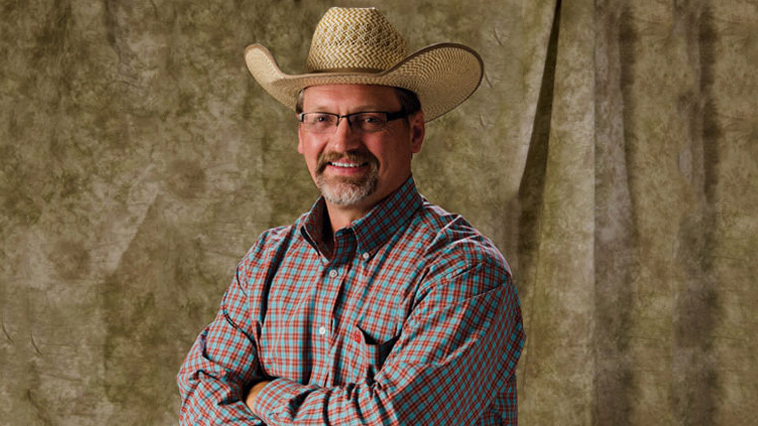


By Billy Smith
Even after he had earned a small, hard-won war chest, my grandfather rarely splurged on himself. He and my grandmother lived in a World War II-era, asbestos-sided home until they died a few years apart. They lived in a modest neighborhood on a dirt path of Avenue J on the outskirts of our rural town where red, sandy loam was as common as oxygen. On those rare occasions when the skies opened and deposited anything more than a shower, reaching their home by vehicle was almost impossible.
Everything my grandfather owned was a product of hard work, so he had little patience with those who called for things unearned even if the clarion was for the righteous. Trends, movements and activism made little sense to him. In fact, such things struck him as insincere and acrimonious reflections of the lazy. “If you’re working, you don’t have time for that kind of silliness,” he’d say on tempered moments. He’d utter the same logic laced with well-placed compound modifiers on days when the tumult of the 1960s and ’70s had overtaken him. The many tethered events of 1968 made what little trust he had in government institutions and politicians wither through his hand like so much rain-washed clay.
His next-door neighbors were Mexican and had found ways to extract themselves from the pangs of migrant labor by grinding their knuckles in oil field work. They were poor but were working themselves out of it. Across the sorrel-colored road was an equally poor African-American family. My grandfather knew each family member by name and that was sufficient evidence to him that all folks could get along without the vicissitudes of government. He didn’t need to march in Washington to prove his acceptance of others. He just lived that way in the machinations of the daily. Yet long after he could afford to own better and live better, he stayed put. He needed a place to make his coarse-ground cowboy coffee each morning and a stool where he could set and shine his boots. Occasionally, he splurged on a new F150 single cab. He bought a few nimble racehorses and put up some wins in New Mexico and El Paso. But for the most part, he lived like so many World War II and Great Depression survivors: with frugality.
His one true splurge was boots. He didn’t keep many pairs, but they were expensive for the day and he meticulously polished them himself. The slightest smudge of dust deposit sent him digging in his closet for a well-worn shoeshine box filled with polishes and repurposed strips of discarded T-shirts. He never left boot polishing to anyone else. I’m not certain why taking care of his footwear was so important, but I know that chapters of his life as a poor Arkansas boy involved no shoes at all. So when hard work and sacrifice had moved him from desperately poor to boot affluence, it seemed wasteful to keep them in any condition but pristine.
I keep the evidence of those days in my house: a light pair of lizard-skin Tony Lama’s neatly tucked into a corner of my son’s room are the only vestiges of my grandfather’s footwear investment. They’re shiny, tan and small. Like many of his contemporaries who muddled through their early childhoods with barely enough to survive, he was undersized—I surpassed his foot size by the time I was 15. It was a heartbreaking moment for me to discover that I could never again wear my grandfather’s boots. The idea that I was ever bigger than him was a painful swallow. When he was alive, I often sneaked into his closet and tried them on, pining for the day when I could wear a pair just like them. He’s been gone for decades now, but his boots are in my house always, a pleasant reminder of a man who took care of his family and his things—after all, taking care of things told everyone else that you’d taken care of your family.
We make a habit of keeping boots around our house long after their usefulness is exhausted. There’s my daughter’s tiny pair of red cowgirl boots that seemed never to leave her feet until she was forced to trade them in for another pair. Growing up is hard on little red cowgirl boots. They sit worn and used up in a bookshelf staring down at my wife and me, reminding us that the New York City attorney once purposely pulled them on and dreamed big dreams. A much larger pair of boots are tucked away in another corner of our house. They aren’t cowboy boots, though—they’re my son’s worn pair of United States Marine boots, soiled by the rigors of boot camp. Both my children are like my grandfather, though they never met. My son’s quiet, strong and rooted in an ethos that’s intolerant of slackers and burdened by the injustices committed by those whose unholy alliances seem to threaten our way of life. He’s long since traded his cowboy and basic-training boots for coverings worn by the most elite military operators. My daughter is unmarred by obstacles; there’s always a way.
She’ll never wear the little red boots again, but maybe she’ll move a little closer to them. I expect the Marine will return safely from chasing the worst of the worst around the dark places on the globe. They can retrieve their boots whenever they like, but I hope they never do–at least while I’m still above ground. The New York City lawyer’s path is complex and not for the intellectually weak. She’s left footprints over most of the world before she turned 25. My son’s path is dangerous, thankless and honorable. Nobility fits them both.
On the hardest of the hard days, it fortifies me to know that all three of them have walked on this earth and near to us. Seeing their boots is proof of that.
SHARE THIS